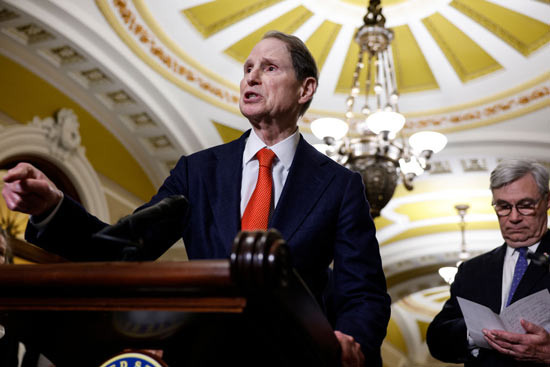Learning Center
We keep you up-to-date on the latest tax changes and news in the industry.
What You Should Know About Potential Tax Implications of the PGA-LIV Merger

The proposed merger between the Professional Golfers' Association (PGA) and Live! Inc. (LIV) has generated significant attention. Last year, numerous former PGA Tour players, like Phil Mickelson, Bubba Watson, Dustin Johnson, and Brooks Koepka, left the PGA to compete in LIV events.
The move caused a massive divide in the golf world, with both fans and players who remain aligned with the PGA speaking out against the Saudi Arabian-owned enterprise. Among the players who stayed with the PGA, including Rickie Fowler, Jordan Spieth, and Justin Thomas, Northern Irishman Rory McIroy has been the most outspoken about his disdain for the LIV as a whole.
The four-time Major winner made headlines during the 2023 Genesis Scottish Open when he said, "If LIV Golf was the last place to play golf on earth I would retire. That's how I feel about it.”
In the light of recent comments made by Oregon Senator Ron Wyden (D), a prominent figure in tax legislation, this guide aims to clarify some of the tax issues surrounding the potential golf merger. Bear in mind, however, that there is an ongoing Department of Justice investigation into the legality of the PGA-LIV pact.

Bubba Watson: Tom Dulat / Getty Images Sport via Getty Images
Senator Ron Wyden's Statements
Senator Wyden, chairman of the Senate Finance Committee, is frequently involved in tax legislation. In June of this year, Wyden launched a probe into the golf merger amid concerns about the resulting entity’s tax-exempt status in the United States.
In a memo, Wyden wrote, “I believe it is critical that lawmakers understand what risks this arrangement may pose to America’s national interests, particularly with respect to foreign investment in U.S. real estate, such as locations neighboring military facilities or sensitive manufacturing centers, and how you plan to mitigate those risks.”
Additionally, he shared that he believes, "An organization that betrays its own word and agrees to become a profit generator for Saudi Arabia’s brutal regime has disqualified itself for a tax exemption.”
Under current law, the PGA Tour enjoys tax-exempt status as a 501(c)(6) organization. After the pending merger of the PGA and the Saudi Public Investment Fund (PIF) caught Wyden’s attention, he introduced the following legislation:
The Sports League Tax-Exempt Status Limitation Act, which would modify the 501(c)(6) designation in the tax code to exclude sports organizations with assets exceeding $500 million. Both the PGA and PIF have assets exceeding $500 million.
The Ending Tax Breaks for Massive Sovereign Wealth Funds Act would deny the current law exemption from a 30% withholding tax that benefit to funds belonging to countries that have more than $100 billion invested globally

Stuart Franklin / Getty Images Sport via Getty Images
Corporate Tax Implications
Should the merger occur, the resulting organization may face significant changes regarding its taxes based on a number of factors, including Wyden’s proposed legislation and the following issues:
Taxation on Corporate Income: The combined entity will likely experience changes in its taxable income due to adjustments in deductions, credits, and expenses. Due to this, the group’s overall corporate tax liability could shift.
Tax Credits and Incentives: Depending on the structure of the possible merger, the new entity may be eligible for certain tax credits and incentives offered by relevant jurisdictions both in the United States and internationally.
The proposed PGA-LIV merger could significantly impact the taxes that the new organization needs to pay, both in the United States and internationally. Corporations, employees, and stakeholders involved in the merger should take proactive steps to understand any potential tax implications they may face.

Sen. Ron Wyden: Anna Moneymaker / Getty Images News via Getty
As this situation continues to evolve, updates will be shared in this article.
What do you think about the possible merger of the PGA with LIV?
Want our best tax and accounting tips and insights delivered to your inbox?
Sign up for our newsletter.
Benefits of having a business advisor
Your CFO, Reimagined as a Financial Doctor
Diagnosing root causes, prescribing solutions, and guiding your property business toward long-term wealth.
Our CFO | Advisor
Raquel is a passionate business owner. Now, she is returning to her grassroots with a twist - guiding clients with her expertise as a CPA, she can advise your company as your trusted CFO and Advisor.
-

Raquel Deodanes, MS, CPA
Co-Founder✅ CPA with Real-World Experience – I help property managers stay profitable, tax-efficient, and cash flow positive.
✅ Tax Strategist – Former advisor at California’s revenue agency.
✅ Trusted by 4,000+ Businesses – Experience across CA, FL, TX, NV, and beyond.
✅ Real Estate Investor – I understand the financial realities of property management.
✅ Entrepreneur – I’ve built businesses and know the challenges you face.
Frequently Asked Questions
-
We diagnose financial inefficiencies, treat problems like poor cash flow or rising costs, and guide you to long-term financial health. That includes cleaning up your books, forecasting cash flow, optimizing operations, and helping you grow your portfolio with confidence — just like a doctor builds a custom care plan for a patient.
-
Bookkeepers record transactions. CPAs file your taxes. We connect the dots — helping you understand your numbers, strategically improve them, and make smarter decisions throughout the year. We work alongside your existing team to drive performance, not just compliance.
-
If you're unsure where your cash is going, struggling with rising costs, planning to scale, or just tired of reacting instead of planning — now is the right time. We help you get ahead of problems, not just clean up after them.
-
Clients typically see improved cash flow, cleaner books, higher NOI, better financial reporting, and a lot less stress at tax time. More importantly, you gain clarity, confidence, and control over your business — and a partner who helps you grow it.
Pricing
Painless, transparent pricing.
Let us take away your stress and give you back your time. Choose your perfect package today.
Base
-
Dedicated finance expert
-
Bookkeeping with accrual basis
-
Includes P&L, balance sheet, and cash flow statements
Core
-
Includes everything in Base, PLUS
-
Industry KPIs and financial ratios
-
Monthly virtual 1-hr meetings
-
Monthly rolling budget forecasts
Growth
-
Includes everything in Base, CORE
-
Budget vs. actuals variance analysis and review
-
Payroll and HR Platform